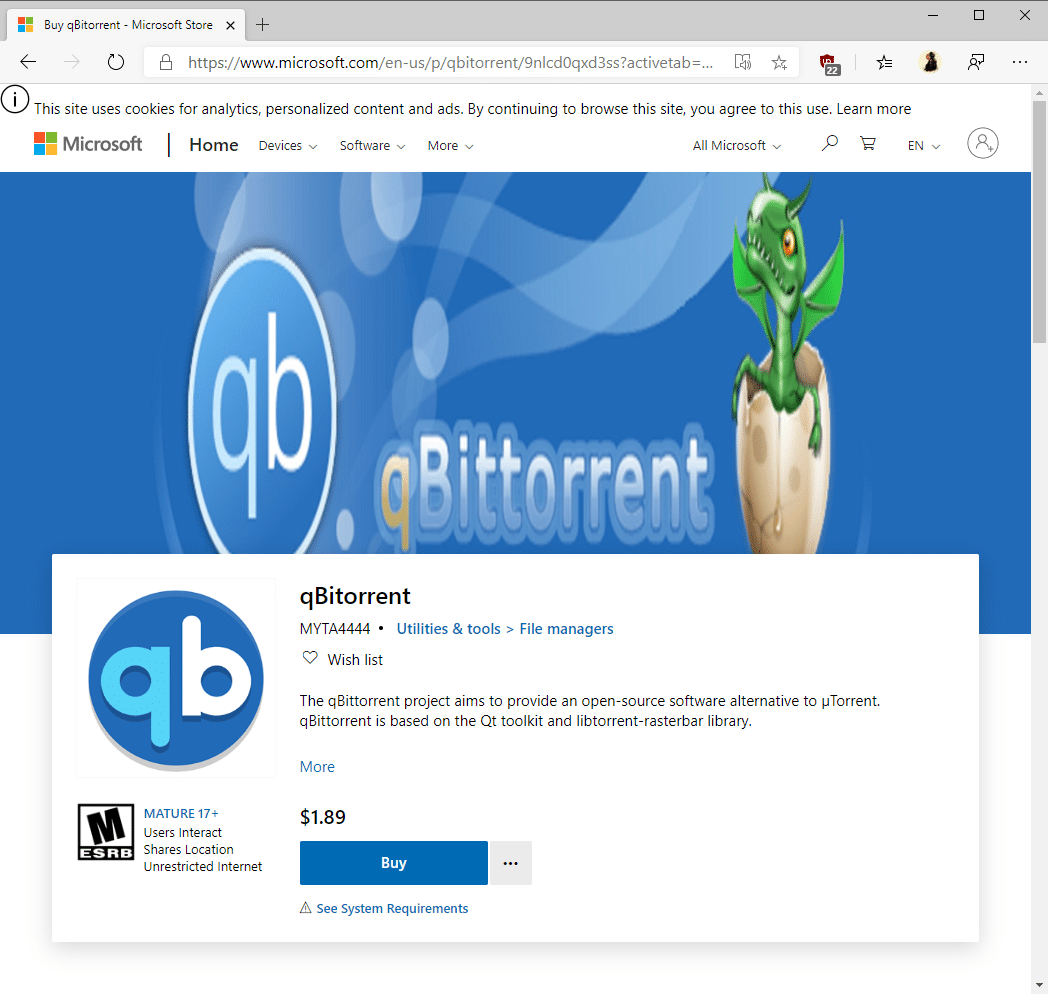qBittorrent warns users not to install the Microsoft Store version

The developers of one of the most popular torrent clients, qBittorrent, warn users not to install the Microsoft Store version of the application.
The warning, which is displayed on the release notes page on the official qBittorrent website, informs users that the Microsoft Store version is not created by the team nor officially licensed or sanctioned by the original development team. In addition, the Microsoft Store release is not free but needs to be purchased.
The warning has been attached to the two newest qBittorrent releases:
ATTENTION WINDOWS USERS: There's a "qBittorrent" app on the Windows Store which costs money. It isn't an official release nor it is coming from us. The person publicizing it doesn't have permission to use the qBittorrent name/logo.
The developer account that is behind the Microsoft Store version of qBittorrent has published three additional applications on the Store; all of them commercial ports of popular applications.
Released applications include Smplayer 2020, DarkAudacity, and Pwsafe. All of these are commercial applications and ports of open source software.
The version that is offered on the Microsoft Store is much larger than the desktop edition. The original version of qBittorrent for the desktop has a size of 25 Megabytes; the Store version on the other hand is 12 times larger as it has a size of about 310 Megabytes at the time of writing.
One explanation of that is that it uses some form of container format that includes the repackaged qBittorrent files.
Microsoft's Store, which was formerly known as Windows Store, has had its fair share of copycat and fake applications since its initial release with Microsoft's Windows 8 operating system. While the situation has improved in recent years -- you won't find dozens of fake applications using icons and names of popular programs and services anymore -- it is still common that unauthorized ports make an appearance on the Store.
It is usually a good idea to check the official homepage of an application to verify that the Store version is either created by the original development team or that the original team does not have any objections to the app being offered by a third-party.
Now You: Do you use the Microsoft Store to download apps?
